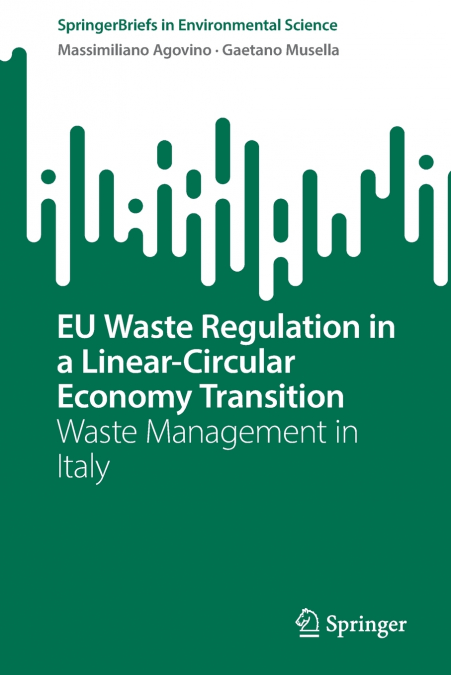
Gaetano Musella / Massimiliano Agovino
Waste management is a topical issue worldwide. In recent years, several requests have been made by citizens and associations to political decision-makers regarding the need for a significant improvement in waste management methods. Particularly considering the significant increase in awareness of social and environmental impacts and the economic consequences of non-virtuous waste management. There is growing attention on legislation and regulation’s role in the waste sector. Regulation can help companies and citizens achieve a faster, more effective, and more efficient transition from a linear economy, based on the take-make-dispose paradigm, to a circular economy, in which the potential of waste as resources and secondary raw materials is exploited.This book is set in the wake of economic literature that tackles the transition from the linear to the circular economy. It focuses on the downstream stages of the waste management process (i.e. the waste treatment phase). In this regard, it is proposed a journey through the history of European waste legislation to study the waste sector’s transition dynamics from a selfish and no longer sustainable economic model based on rampant consumerism to a far-sighted sustainable model addressing the well-being of future generations. Studying the changes in European waste regulations leads us to ask ourselves the following questions: how has waste collection changed in recent years? What are the new regulatory challenges that must be addressed to achieve the objectives of a circular economy? How successful has the EU legislation been in fostering the transition from a linear to a circular economy? Finally, has the European environmental legislation sprung a convergence process among European countries towards the circular economy, or has the definition of targets fuelled the already marked differences between EU countries?